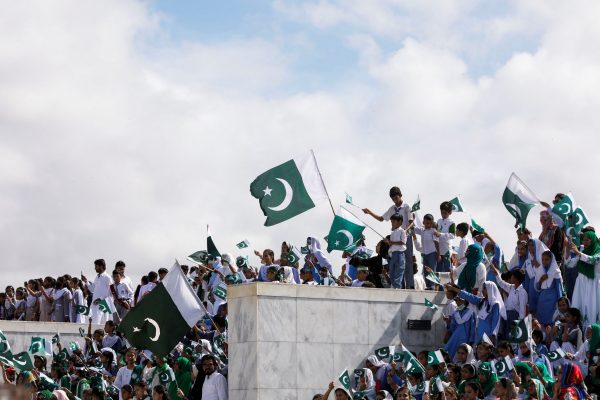Pakistan has performed relatively well as a rentier economy under both civilian and military rule. But living on others’ money without producing enough tradable goods and services has become a habit. With a low domestic savings rate of about 11 per cent, Pakistan is a habitual borrower and makes no real effort to stand on its own feet. For comparison, Bangladesh and India had savings rates of 25.3 per cent and 29.3 per cent respectively during the same period.
The leadership of the current governing coalition — the Pakistan Muslim League-Nawaz (PML-N) and Pakistan People’s Party (PPP) — is widely believed to be corrupt and primarily interested in continuing their dynastic rule. Some, including former prime minister Imran Khan, allege that the overseas holdings of some PML-N and PPP politicians were purchased with laundered money, for they have offered no plausible proof of how these properties were acquired.
Partially democratic governments, often a patchwork of interest groups trying to benefit each other, often buckle under group pressure. Pakistan remains trapped in a cycle of low savings, minimal local investment, heavy borrowing, escalating international debt, low productivity and high inflation.
Pakistan has experienced only a few periods of calm since its independence in 1947 and has made little attempt to learn from its mistakes. Successive governments have lacked the gumption to undertake structural reforms to correct the course of the economy. With key political actors not even on talking terms, a national economic consensus seems impossible to achieve. Prioritising is difficult when an overhaul is necessary, and no one seems to have the will or capacity to undertake the task.
With rampant poverty and deprivation, Pakistan’s internal cohesion is at stake — a situation that could draw neighbours like Afghanistan and Iran into the fray. India does not want a troubled state on its borders and a Pakistan that is at peace with itself is important for China’s strategic interests.
Under these circumstances, a US$1.2 billion loan from the International Monetary Fund, likely to be released at the end of August 2022, will only provide temporary relief because there is still no real will to find longer term solutions. Proper reform requires systemic change and the powerful elite are unwilling to surrender their perks and privileges.
Political opponents operate in silos, allowing third parties like the military and judiciary to adjudicate. Politicians kowtow to the army behind closed doors and routinely question the integrity and impartiality of the judiciary if a judgement does not fall in their favour. This weakens the two institutions, which should remain above the political fray in any civilised state.
It is difficult to conclusively argue whether Pakistan’s internal dynamics or external posture has led to the current state of desperation. After the devastating rule of military dictator Mohammad Zia-ul-Haq from 1977–88, Pakistan’s subsequent governments have only played with short-term, quick-fix solutions that align with their own interests rather than that of the nation’s.
For the common citizen, there is no state of Pakistan. Such a dysfunctional polity is in urgent need of a national consensus on the basic purpose of a state that was founded to protect the Muslims of India. Ordinary Pakistanis have been denied economic opportunities and judicial fairness, and their anger and intolerance is festering. With such deep societal fissures, Pakistan does not have the luxury of waiting another 75 years to correct its course.
Pakistan needs a new generation of citizens that have been brought up under civic and ethical values that align with the national identity. Democracy as defined by the West is not in Pakistan’s DNA. To correct its course, Pakistan should follow the East Asian growth model.
The country needs a strict technocratic government that will ruthlessly pursue the state’s economic interest, improve social services and develop industry, renewable energy, hydroelectric power and more for at least two to three generations before loosening up for full democratic participation. The nation has paid enough of a price chasing the mirage of Western democracy — an ill-suited treatment for the diseases afflicting Pakistan.
Unless resolute action is taken now, there is every chance that Pakistan will fall back into crisis sooner rather than later. International stakeholders can only do so much — the task of reform rests with the ruling elite. If that fails, it will be the common citizen who suffers.
Sajjad Ashraf served as an adjunct professor at the Lee Kuan Yew School of Public Policy, National University of Singapore from 2009 to 2017. He was a member of Pakistan Foreign Service from 1973 to 2008 and served as ambassador to several countries.


A very apt evaluation of Pakistan’s 75 Years of “Independence”. The masses remain enslaved while the ruling elite factions remain incorrigibly inept, corrupt and decadent.